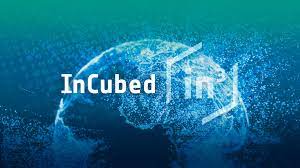Early bird rates are available for registration to the 2026 January ESIP Meeting. Register.
Next Innovation Webinar: InCubed Programme, A Co-Funding Programme of the European Space Agency’s Φ-lab

The Earth Science Information Partners (ESIP) 2021 Webinar Series, which focuses on our annual theme of Leading Innovation in Earth Science Data Frontiers, will continue on Wednesday April 28th at 11:30 am ET/8:30 am PT. This series is generously sponsored by our partner SAIC. Learn more about the event below and check esipfed.org/webinars for details on future webinars.
Investing in Industrial Innovation (InCubed): A Co-Funding Programme
of the European Space Agency's Φ-lab
When: Wednesday April 28th, 11:30 am – 1:00 pm ET
Connection Info: REGISTER HERE
This 90-minute webinar will feature InCubed (https://incubed.phi.esa.int), which stands for ‘Investing in Industrial Innovation’ and is a Public Private Partnership co-funding programme run by the European Space Agency (ESA) Φ-lab (https://philab.phi.esa.int). The mission of ESA’s Φ-lab is to accelerate the future of Earth Observation (EO) by means of transformational innovation, i.e. innovation which completely transforms or creates entire industries via new technologies, with the aim to strengthen the competitiveness of the EO industrial and research sectors. InCubed focuses on developing innovative and commercially viable products and services that leverage the value of Earth observation imagery and datasets. The programme has a very wide scope and can be used to co-fund anything from building satellites to ground applications and everything between or to develop new EO business models. Join the webinar to learn about the InCubed Programme and the ESA Φ-lab that the programme sits within. You will also hear from speakers from 4 activities at various stages of development supported by InCubed. Each of the speakers will touch on 1) how their activities are innovative, 2) what their biggest challenges in innovating have been, and 3) what further innovations are needed. See below for more details.
More Details:
- Overview of the Φ-lab Division at European Space Agency & the InCubed Programme
Amanda Regan, Head of the Φ-lab Invest Office & InCubed Programme Manager, Earth Observation Future Systems Department ESA
- Hyperscout-2: Miniaturised hyperspectral and thermal imaging coupled with Artificial Intelligence for breakthrough operational space missions. Speaker: Marco Esposito, Managing Director at cosine Remote Sensing
- COASTEO: Providing validated water quality information to commercial clients using a combination of low cost buoy platforms and satellite data. Speaker: Charlotte O'Kelly, CEO at TechWorks Marine
- MANTIS: A demonstration mission to jointly develop, build, launch and operate an innovative nanosatellite platform that will fly a high resolution Earth Observation (EO) camera aimed at oil and gas exploration. Speaker: Florian Deconinck, Vice President of Institutional Partnerships & Future Missions at Open Cosmos
- SAT4FLOOD: A global levee risk monitoring service combining satellite high-resolution soil moisture data with InSAR deformation data and other EO data sources. Speaker: Patrick Stoppelman, Director Business Development at SkyGeo
About ESIP
Earth Science Information Partners (ESIP) is a community for global Earth science data professionals that works to advance the usefulness and impact of data to address pressing global environmental challenges and fuel new discoveries. For more than 20 years, ESIP has worked to support the networking and data dissemination needs of the global Earth science data community by linking the sectors of observation, research, application, education, and use of Earth science data. ESIP facilitates collaboration and builds connections across federal agencies, academia, and the private sector through innovative collaboration methods and infrastructure that provide a scalable, neutral platform to support Earth science research, data, and technical communities. To learn about ESIP, visit www.esipfed.org and follow @ESIPfed.



